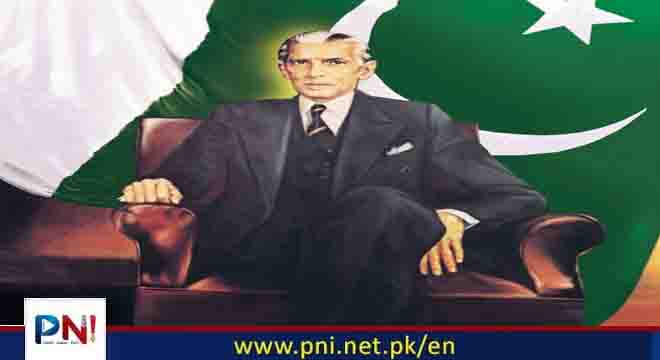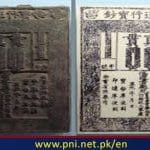ISLAMABAD, Aug 04 :As Pakistan navigates the complex terrain of modern economic challenges, it finds itself striving to fulfill the dream of founding father, Quaid-e-Azam Muhammad Ali Jinnah of a progressive, self-reliant, robust and invincible Pakistan.
As Quaid’s vision remains a guiding beacon for the nation, Pakistan is once again embarking on an ambitious path of economic reform and development and its economy has started improving despite numerous challenges as the World Bank also projects its GDP growth to reach 3.7% in 2024 after sluggish growth in recent past.
Since its inception in 1947, the country sailed through different upheavals and turmoil with its growth rate fluctuating between one and seven percent. Political uncertainty, regional commotions and international circumstances like Afghan War, war against terrorism and Indian infiltration have been severely affecting our economic growth.
But, our economy showed strength and resilience to sustain all ethereal and manmade calamities. Respective government toiled hard to lift the country from oblivious pits of recession time and again and so is the present government doing to stabilize economy by implementing structural reforms.
Through concerted efforts, the government has been successful in bringing down CPI inflation rate to 9.5% in 2024 from 11.0% in 2023 and putting in efforts to reduce fiscal deficit to 4.2% of GDP by end of 2024 from 5.0% in 2023.
Projects like China-Pakistan Economic Corridor (CPEC) have seen significant advancements and besides development of communication modes, the country has been expanding its energy infrastructure with new power plants and renewable energy projects. It added 2,500 MW solar and wind energy in 2024, contributing to its goal of achieving 30% renewable energy in its energy mix by 2030.
Agriculture and industry are crucial to Pakistan’s economy and recent developments highlight progress in these sectors with the both showing positive signs and enhanced productivity in past couple of years.
As economic growth has its impact on social development, the government in line with Quaid’s vision is endeavoring to improve literacy rate and educational outcome while investment in health sector has also led to establishment of 50 new hospitals and 200 health clinics across the country.
Since 1947, Pakistan has also made significant strides in realm of defense, emerging as a formidable military power in South Asia. This journey has been marked by the development of indigenous capabilities, strategic partnerships and modernization efforts. At the time of independence, Pakistan inherited a small fraction of British Indian military apparatus. But, it rapidly organized and expanded its armed forces by forming Pakistan Army, Navy and Air Force.
One of Pakistan’s most significant defense achievements is development of its nuclear capability. In response to regional security dynamics and the nuclear tests conducted by India, Pakistan conducted its own nuclear tests in May 1998, under the leadership of the then Prime Minister Nawaz Sharif. These tests, known as Chagai-I and Chagai-II, marked Pakistan’s entry into the group of nuclear-armed states, thereby enhancing its strategic deterrence capabilities.
Pakistan has made considerable progress in developing indigenous defense production capabilities. The organizations like Pakistan Ordnance Factories (POF), Heavy Industries Taxila (HIT) and Pakistan Aeronautical Complex (PAC) have enabled the country to produce a wide range of military equipment. Al-Khalid tank, JF-17 Thunder fighter jet and various missile systems are notable examples of Pakistan’s indigenous defense production.
Pakistan has cultivated strategic defence partnerships with several countries and its ties with China have of utmost importance, leading to joint ventures like development and production of JF-17 Thunder fighter jet.
Collaboration with Turkiye has also resulted in acquisition and co-production of advanced military hardware as these partnerships facilitated technology transfer, training and joint exercises, contributing to the overall enhancement of our defence capabilities.
Pakistan had also focused on modernizing its armed forces and incorporating cutting-edge technologies and inclusion of advanced fighter jets like F-16, submarines and Chinese Type 054A/P frigates, air defense systems, development of unmanned aerial vehicles (UAVs) are part of its modernization drive.
Additionally, Pakistan’s strategic forces have been bolstered with the development of multiple independently targetable reentry vehicles (MIRVs) and submarine-launched ballistic missiles (SLBMs).
Our armed forces have played a pivotal role in combating terrorism and ensuring internal security. The launch of military operations Zarb-e-Azb and Radd-ul-Fasaad against militant groups had significantly reduced the threat of terrorism within the country.
During past few decades, the country also produced great scholars, politicians, economists, jurists, doctors, engineers and talented youth who won laurels for the country making to get their abilities recognized at international forums.
Be they be the veterans like Dr Abdul Qadeer Khan and Abdul Sattar Edhi or youngsters like Arfa Kareem, Quaid’s Pakistan has vast potential to be materialized for developing a resilient nation.
Although efforts are sincere, yet there are challenges like political uncertainty, non-continuation of policies, debt burden, corruption and nepotism, terrorism and extremism, unemployment and literacy rate and an overall political and economic stability. Our youth have unbeatable ability and potential and what we need is an able leadership to show them the right path and harness their potential to build a strong and self-reliant Pakistan.
Follow the PNI Facebook page for the latest news and updates.








